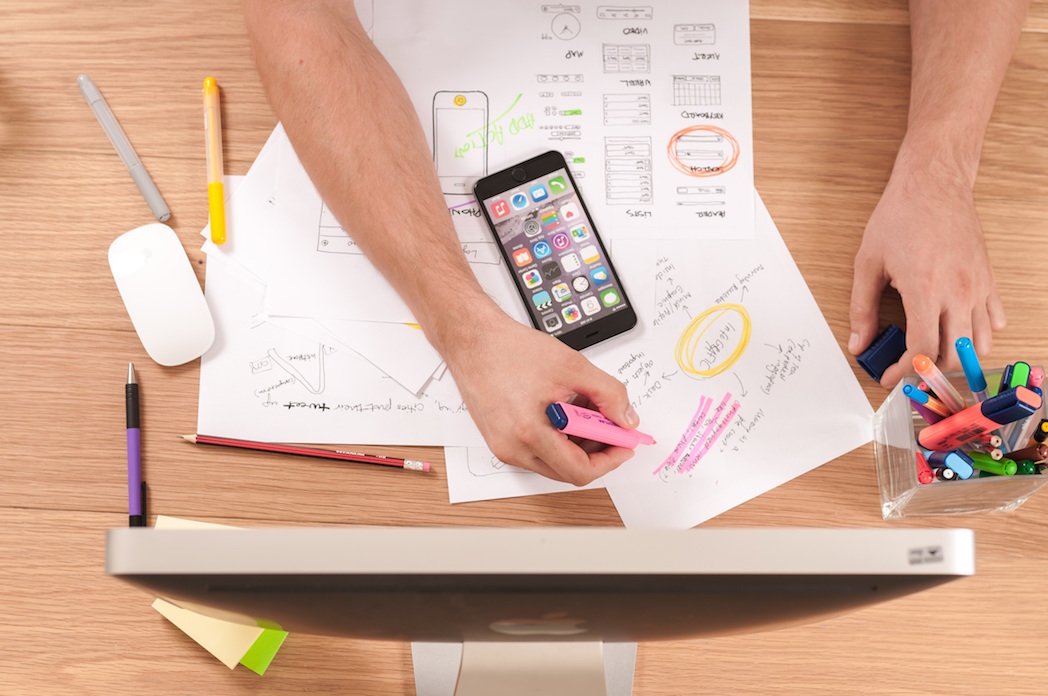In Focus: The Hidden Power of Excellence, author Daniel Goleman says distractions come in two forms: external distractions, which come from other people and our environment, and emotional distractions, which come from our own minds.
 Image credit: William Iven
Image credit: William Iven
Surprisingly, Goleman says it’s not external distractions that are the biggest problem with staying focused at work. Emotional distractions, which tend to occur as “chatter” in our minds, is what Goleman says causes most of our problems with focus:
It’s not the chatter of people around us that is the most powerful distractor, but rather the chatter of our own minds.
These emotional distractions come from leaving things unfinished. If something is worrying us, or on our mind because it’s not resolved, our brains want to find a solution. The Zeigarnik effect, coined after a 1927 research paper published by psychologist Bluma Zeigarnik, explains this phenomenon: when we begin a task, we create tension that isn’t resolved until the task is finished. That tension causes our brains to focus on the unfinished task—we essentially bug ourselves about the task until we get around to finishing it.
Our brains are trying to look after us: helping us find a solution so we won’t worry anymore, but in doing so they cause us to be distracted when we’re trying to focus on something else.
How to get your focus back
Although internal, emotional distractions are our main problem, there’s no doubt that a noisy office, interrupting colleagues, or an uncomfortable workspace don’t help with focus.
Beyond finishing tasks so the Zeigarnik effect doesn’t keep you from getting things done, there are a few things you can do to improve your ability to focus at work.
Take real breaks
It might sound counterintuitive, but taking real breaks for more than a couple of minutes will actually improve your focus and productivity. Research shows the unfocused, free-form thinking we do when we take real breaks is what helps our brains recharge. So try to take breaks of at least ten minutes throughout the day, where you don’t think about work at all.
If you find taking breaks hard to do, try scheduling ten-minute periods (or longer) into your calendar. Set an alarm if necessary, and get yourself away from your desk. Your brain will thank you for it.
Spend time in nature
 Image credit: Kim Greenhalgh
Image credit: Kim Greenhalgh
One great way to spend your work breaks is to surround yourself with nature. Or, to be more specific, trees.
Research shows walking in a park full of trees is good for us. Compared to walking in a city street, walking in a park lets the brain relax and refocus much better.
City streets tend to be full of stimuli that require our attention, so our brains can’t relax. Natural settings are more calming for our minds, but even just seeing trees seems to make us healthier.
Do something you enjoy
 Image credit: William Iven
Image credit: William Iven
If you’re not lucky enough to have a park or a tree-lined street nearby, you can boost your focus by doing an activity you enjoy. The key is to find something that requires your full attention, but is mainly passive.
Daniel Goleman explains that doing an activity you enjoy can help your brain recover its ability to focus. It doesn’t matter what this activity is, so long as it’s something you can do without working your brain too hard. But it also needs to be something that holds your attention.
The key is an immersive experience, one where attention can be total but largely passive. — Daniel Goleman
You could try playing a musical instrument, cooking, gardening, or painting. Find something you enjoy that’s convenient, passive, but completely engaging for your mind.
Get more natural light
 Image credit: Jake Givens
Image credit: Jake Givens
While breaks and other activities give our brains a much-needed rest, it’s also important to find ways to improve our focus during working hours. One simple change you can make to boost your productivity and mood at work is to sit closer to a window.
While most offices are full of harsh, artificial lighting, this is the worst environment for your focus and productivity. Harsh lighting can cause eye fatigue, making it harder to focus and get things done.
Working in natural light has been shown to improve productivity and decrease the number of sick days taken. Researchers aren’t sure exactly why this is, but one theory is that the natural light helps to calibrate your internal body clock, which in turn improves your sleep quality. Being near sunlight during the day tells your body it’s time to be awake, and can help to naturally turn off the sleepiness induced by working under artificial lighting.
Use a time log to improve your efficiency
If you’re not sure which distractions are hurting your focus most, a time log can help you figure out what needs to change. Since this log is just for you, you can do it simply with a pen and paper. Just write down what you’re working on (or what you’re distracted by) once every hour. Try setting an hourly reminder if you find it hard to remember to take notes on what you’re doing.
After a week or two, you should be able to see patterns in when you get distracted most, and what those distractions are. If you find you’re distracting yourself but you’re not sure why, check in with yourself to see if you’re avoiding discomfort by procrastinating.
You’ll also get a better idea of how long your tasks take from doing a time log. This will help you plan based on reality, rather than an overly-optimistic idea of how much you can get done in a day.
Single-task to improve your focus
When you’re struggling to keep up with your workload, it can be tempting to multitask. Unfortunately, we’ve been wrong in thinking for so long that multitasking was a good skill to have.
Multitasking doesn’t actually exist. What we think is multitasking is actually switching between different tasks very quickly. We do this so quickly that we think we’re doing many tasks at once, but our brains actually pause very slightly to refocus each time we switch tasks.
Those tiny switches add up. Not only are we wasting time with all the task switching, we actually end up being slower and performing worse by trying to multitask.
Working on one task at a time (until it’s finished, to avoid the Zeigarnik effect distracting you) is a much better approach to getting things done. You’ll work faster overall, and produce higher quality work.
When you’re struggling with a big workload, or up against a deadline, it can be easy to blame external forces. Perhaps you have too much work, or your workspace isn’t set up just right, or your colleagues keep interrupting you.
In fact, there’s a name for this tendency. It’s called the self-serving bias. We all tend to attribute positive results to our own hard work, while blaming external forces for anything that doesn’t go our way.
And while it may be true that external forces are at play, you can help yourself by improving your ability to focus at work. Schedule breaks, spend time in nature, and try to work near natural light. You might even produce some good results you can attribute to your own hard work.
For more tips on ways to stay focused at work, we found this article quite helpful as well (thanks Kevin Abdulrahman).


This makes perfect sense, Belle. Whenever my office gets cluttered productivity goes down. Letting the light in, taking regular breaks and walking in the bush also fosters boosts in creativity and productivity. While I have tried GTD and pommodoro these approaches feel too rigid for me, so I keep going back to http://e.ggtimer.com/ (even though the interface is pretty damn ugly). I set the amount of time for a task or a break and https://www.epiforge.com/Grindstone/ does the time tracking.
Sometimes simple tools are the best, John! I’m using a lot of good old pen and paper lately, and I find it’s sometimes a relief to not worry about modern apps with too many features or fancy designs.